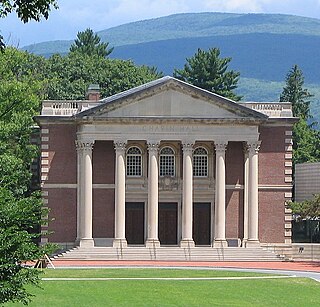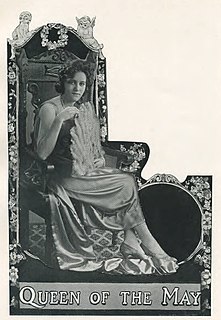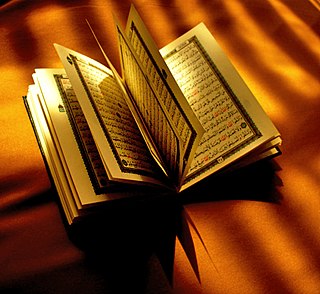
A college is an educational institution or a constituent part of one. A college may be a degree-awarding tertiary educational institution, a part of a collegiate or federal university, an institution offering vocational education, or a secondary school.

A primary school, junior school or elementary school is a school for children from about four to eleven years old, in which they receive primary or elementary education. It can refer to both the physical structure (buildings) and the organisation. Typically it comes after preschool, and before secondary school.

A school is an educational institution designed to provide learning spaces and learning environments for the teaching of students under the direction of teachers. Most countries have systems of formal education, which is commonly compulsory. In these systems, students progress through a series of schools. The names for these schools vary by country but generally include primary school for young children and secondary school for teenagers who have completed primary education. An institution where higher education is taught, is commonly called a university college or university, but these higher education institutions are usually not compulsory.

Secondary education covers two phases on the International Standard Classification of Education scale. Level 2 or lower secondary education is considered the second and final phase of basic education, and level 3 (upper) secondary education is the stage before tertiary education. Every country aims to provide basic education, but the systems and terminology remain unique to them. Secondary education typically takes place after six years of primary education and is followed by higher education, vocational education or employment. Like primary education, in most countries secondary education is compulsory, at least until the age of 16. Children typically enter the lower secondary phase around age 11. Compulsory education sometimes extends to age 19.
The Master of Business Administration degree originated in the United States in the early 20th century when the country industrialized and companies sought scientific approaches to management. The core courses in an MBA program cover various areas of business such as accounting, applied statistics, business communication, business ethics, business law, finance, managerial economics, management, entrepreneurship, marketing, supply chain, and operations in a manner most relevant to management analysis and strategy.

A boarding school provides education for pupils who live on the premises, as opposed to a day school. The word "boarding" is used in the sense of "room and board", i.e. lodging and meals. As they have existed for many centuries, and now extend across many countries, their function and ethos varies greatly. Traditionally, pupils stayed at the school for the length of the term; some schools facilitate returning home every weekend, and some welcome day pupils. Some are for either boys or girls while others are co-educational.
Education in the United States is provided in public, private, and home schools.

A student is primarily a person enrolled in a school or other educational institution who attends classes in a course to attain the appropriate level of mastery of a subject under the guidance of an instructor and who devotes time outside class to do whatever activities the instructor assigns that are necessary either for class preparation or to submit evidence of progress towards that mastery. In the broader sense, a student is anyone who applies themselves to the intensive intellectual engagement with some matter necessary to master it as part of some practical affair in which such mastery is basic or decisive.

Harvard Law School is the law school of Harvard University in Cambridge, Massachusetts. Founded in 1817, it is the oldest continuously operating law school in the United States and one of the most prestigious in the world. It is ranked first in the world by the QS World University Rankings and the ARWU Shanghai Ranking.
The Juilliard School is a private performing arts conservatory in New York City. Established in 1905, the school trains about 850 undergraduate and graduate students in dance, drama, and music. It is widely regarded as one of the world's leading drama, music and dance schools, with some of the most prestigious arts programs.

Harrow School is public school for boys in Harrow, London, England. The School was founded in 1572 by John Lyon under a Royal Charter of Elizabeth I, and is one of the original seven public schools that were regulated by the Public Schools Act 1868. Harrow charges up to £12,850 per term, with three terms per academic year (2017/18). Harrow is the fourth most expensive boarding school in the Headmasters' and Headmistresses' Conference.

A teacher is a person who helps students to acquire knowledge, competence or virtue.
A middle school is an educational stage which exists in some countries, providing education between primary school and secondary school. The concept, regulation and classification of middle schools, as well as the ages covered, vary between, and sometimes within, countries.
The Wharton School of the University of Pennsylvania is the business school of the University of Pennsylvania, a private Ivy League university in Philadelphia, Pennsylvania. Established in 1881 through a donation from Joseph Wharton, the Wharton School is the world's oldest collegiate school of business. Furthermore, Wharton is the business school that has produced the highest number of billionaires in the US.
Private schools, also known to many as independent schools, non-governmental, privately funded, or non-state schools, are not administered by local, state or national governments. Children who attend private schools may be there because they are dissatisfied with public schools in their area. They may be selected for their academic prowess, or prowess in other fields, or sometimes their religious background. Private schools retain the right to select their students and are funded in whole or in part by charging their students for tuition, rather than relying on mandatory taxation through public (government) funding; at some private schools students may be able to get a scholarship, lowering this tuition fee, dependent on a student's talents or abilities, need for financial aid, or tax credit scholarships that might be available. Some private schools are associated with a particular religion, such as Judaism, Roman Catholicism, or Lutheranism. For the past century, roughly one in 10 U.S families has chosen to enroll their children in private school.
State schools, called public schools in North America and many other countries, are generally primary or secondary schools mandated for or offered to all children without charge, funded in whole or in part by taxation.

A secondary school is both an organization that provides secondary education and the building where this takes place. Some secondary schools can provide both lower secondary education and upper secondary education, but these can also be provided in separate schools, as in the American middle and high school system.

Homecoming is the tradition of welcoming back former students and members and celebrating an organization's existence. It is a tradition in many high schools, colleges, and churches in the United States and to a lesser extent in Canada.

High School Musical is a 2006 American musical television film written by Peter Barsocchini, directed by Kenny Ortega. It is the first installment in the High School Musical trilogy.
A charter school is a school that receives government funding but operates independently of the established state school system in which it is located.














